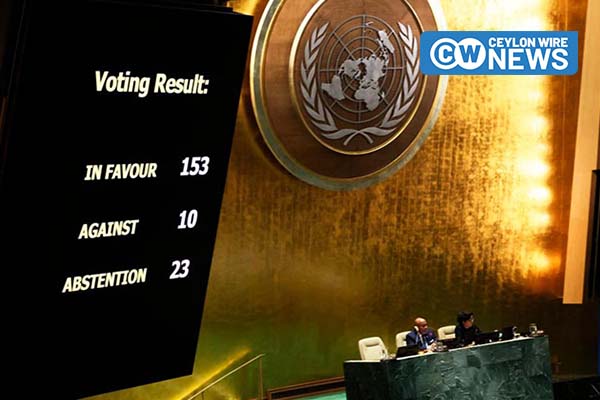In a decisive move demonstrating global support to end the Israel-Hamas war, the U.N. General Assembly voted strongly in favor of a humanitarian cease-fire in Gaza. The vote, with 153 countries in favor, 10 against, and 23 abstentions, underscored the increasing isolation of the United States and Israel on the international stage.
The applause resounded as the final tally was revealed, with the U.S. and Israel joined by eight countries—Austria, Czechia, Guatemala, Liberia, Micronesia, Nauru, Papua New Guinea, Paraguay—in opposing the resolution.
This level of support surpassed that of the previous Arab-sponsored resolution on Oct. 27, emphasizing a “humanitarian truce,” where the vote stood at 120-14 with 45 abstentions.
Riyad Mansour, the Palestinian U.N. ambassador, hailed the day as historic, emphasizing the collective duty to continue until the aggression against their people ceases: “It is our duty to save lives.”
The United States, traditionally a strong ally of Israel, faced a growing international divide in its support for Israel’s military campaign. President Joe Biden, in a departure from the usual rhetoric, warned that Israel’s “indiscriminate bombing” was eroding its international support.
Following the U.S. veto in the Security Council on Friday, which blocked a resolution for a humanitarian cease-fire, an emergency session of the General Assembly was convened on Tuesday to vote on a similar resolution. Though General Assembly resolutions are not legally binding, they serve as significant indicators of global sentiment.
The resolution, focused on ending the Israel-Hamas conflict, made no mention of Hamas, and proposed amendments mentioning the militant group were defeated. The assembly emphasized the need for compliance with the cease-fire demand.
With the war causing unprecedented death and destruction, the General Assembly President, Dennis Francis, highlighted the onslaught on civilians, breakdown of humanitarian systems, and the disrespect for international law. He urged swift action to halt the carnage.
U.S. Ambassador Linda Thomas-Greenfield outlined demands for Israel to avoid mass displacement, provide sufficient humanitarian assistance, and allow civilians to return home. However, she reiterated the U.S. commitment to Israel’s right to defend itself.
Israel’s U.N. Ambassador, Gilad Erdan, warned that a cease-fire would prolong death and destruction, claiming it would ensure the survival of Hamas. He urged nations to call Hamas directly for a cease-fire.
The resolution expressed grave concern over the humanitarian situation, demanding protection for Palestinians and Israelis in accordance with international humanitarian law. It called for compliance with humanitarian law, the release of hostages, and ensuring humanitarian access.
The voting shift was notable, with more than 25 countries changing their stance from abstention to supporting the cease-fire demand. Croatia and Fiji reversed their votes, while Hungary, the Marshall Islands, and Tonga shifted from no to abstention. Source – BBC









